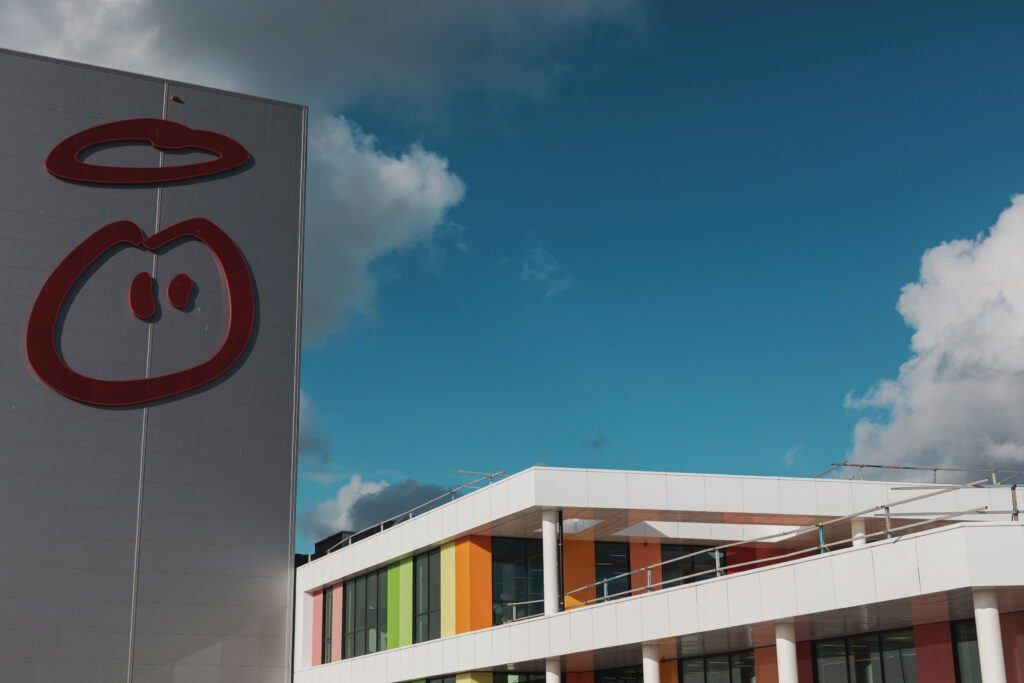innocent and the Port of Rotterdam – the perfect blend for success
Sustainable manufacturing and production isn’t just a ‘nice to have’ these days. If businesses want to prove they share their customers’ values, it’s a necessity – whether you’re in the Netherlands or anywhere else around the world.
UK-based smoothie and juice maker innocent has always had impressive environmental credentials. But when they committed to hitting carbon neutral by 2025, and net-zero by 2040 – they needed more than incremental supply chain improvements. They needed a sustainable production revolution. And the Port of Rotterdam in the Netherlands turned out just to be the right location.
As Fiona Waller, innocent’s Supply Chain Director, explains: “Our main aim is to make sure that we keep the carbon footprint of our drinks as low as possible. For some time, we’d been looking at ways to bring our manufacturing network closer together; step-changing our impact on the environment by taking miles off the road and reducing our carbon footprint.”
Rotterdam, the crossroads of sustainability
The solution was to build a carbon-neutral factory, ‘the blender’, in Rotterdam. Former innocent CEO, Douglas Lamont, broke ground with Rotterdam Mayor Aboutaleb back in 2019. And now, almost exactly three years later, parts of the stunning new factory are up and running, with work moving at pace to get it fully operational.
What does ‘fully operational’ mean? Making innocent drinks in the most sustainable way. Under one roof. From fruit to bottle.
“We chose the Port of Rotterdam because it’s the most sustainable place for innocent to be. Our production lines are now as close as possible to where our ingredients arrive off the boat. Plus, 60% of our drinkers now live in Europe. It made total business sense to be in Rotterdam,” says Fiona.
The blender runs entirely on 100% renewable energy and has recently achieved an outstanding accreditation from BREEAM, the standard for sustainable buildings.
Currently, the factory is also powered by wind energy from the grid. But soon it will use its own electricity sources – reducing the energy it needs with heat pumps and other innovations, and generating its own power from solar panels. Over the next couple of years, the site will welcome its own wind turbines too.
On top of all the carbon-saving initiatives, innocent has also introduced smart water-reduction measures: a Fluivac cleaning system which mostly uses air instead of water to blast juice residues out of the equipment.
100% focused on a net zero supply chain
As part of their 2025 carbon neutral commitment, innocent tries to ship all its fruit by boat – air cargo emits 86 times more carbon (at least). Then, when the orange juice has moored at the Port of Rotterdam, it’s transported to the blender by some of the first fully-electric, battery powered bulk juice tanker trucks.
innocent wants the blender to be a blueprint that inspires other businesses to rethink their supply chains. And they don’t have to mirror innocent’s end-to-end revolution: “We want to encourage others to improve the sustainability of their factories. Not just as new builds, but to also use our learnings for retrofitting as we all work towards a low carbon future.” says Fiona.
A pioneering approach
innocent was the first company to move into the Rotterdam Food Hub. The 60-hectare business park was set up by the Port of Rotterdam Authority specifically for the agrifood sector. The realization of innocent’s carbon neutral production facility was also supported through financial incentives and support measures from the Dutch national government towards companies that want to make that extra step in energy efficiency.
From day one, the Dutch national government, the city of Rotterdam and the Port of Rotterdam have worked with innocent to build the right infrastructure, lending advice on planning and delivery – as well as helping administrative processes run smoothly. innocent also enjoys access to several reserved berths and warehouses located right on the quays, so cooled and frozen cargo can be easily stored or quickly transported to the blender.
As Fiona says, it’s a ground-breaking move for a life-changing movement, “Climate change is one of the biggest challenges facing humankind right now. We hope that by sharing our learnings from the blender, we can play a part in shaping the future of sustainable production.”

